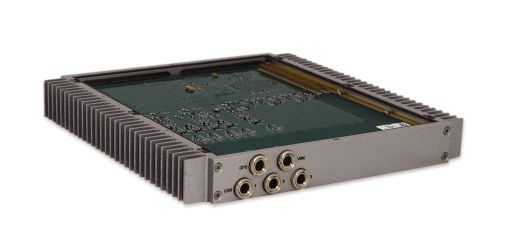eDAQ & eDAQ-lite - Rugged/Mobile


ECOM eDAQ Vehicle Network Communications Layer
The SoMat eDAQ Vehicle Network Communications Layer (ECOM) offers (3) CAN device interfaces, (1) Vehicle Bus Module (VBM) interface and a GPS communications port. It is an extremely versatile layer providing a direct correlation between vehicle bus channels with physical data (analog, thermocouple and frequency) as well as GPS. Up to 254 vehicle bus channels can be recorded per input, allowing total eDAQ system channel counts to be virtually limitless. Unlike other data acquisition products, vehicle bus channels do not consume any analog inputs. In fact, all 254-channels are input directly through a single connector.
The ECOM can be used as a passive eavesdropper on the controller network, or when needed, it can become an active participant making requests for specific information. A simple ‘logical masking’ scheme is utilized to identify required frames in an easily managed textual database which identifies where a unique message lay within the frame. By using these methods, not only is it a very short learning curve to master its use, but it is easily manipulated using tools such as Microsoft Excel® where PGN’s (Parameter Group Numbers), PID’s (Parameter Identifiers) or even direct address information can be added or modified. The layer comes with many predefined databases such as J1939 and OBDII, so it as easy as ‘point and click’ to get standard information.
The GPS communications port is designed to work with SoMat GPS devices.
- Vehicle Network Communications Layer (ECOM) offers 3 CAN ports, 1 Vehicle Bus Module (VBM) interface and a GPS communications port.
- Versatile layer provides a direct correlation between vehicle bus channels with physical data (analog, thermocouple and frequency) as well as GPS
- Easily add channels from predefined and custom CAN databases
- 254 vehicle bus channels can be recorded per CAN port
- Supports 5Hz, and 200Hz GPS
* not supported with EXRCPU











